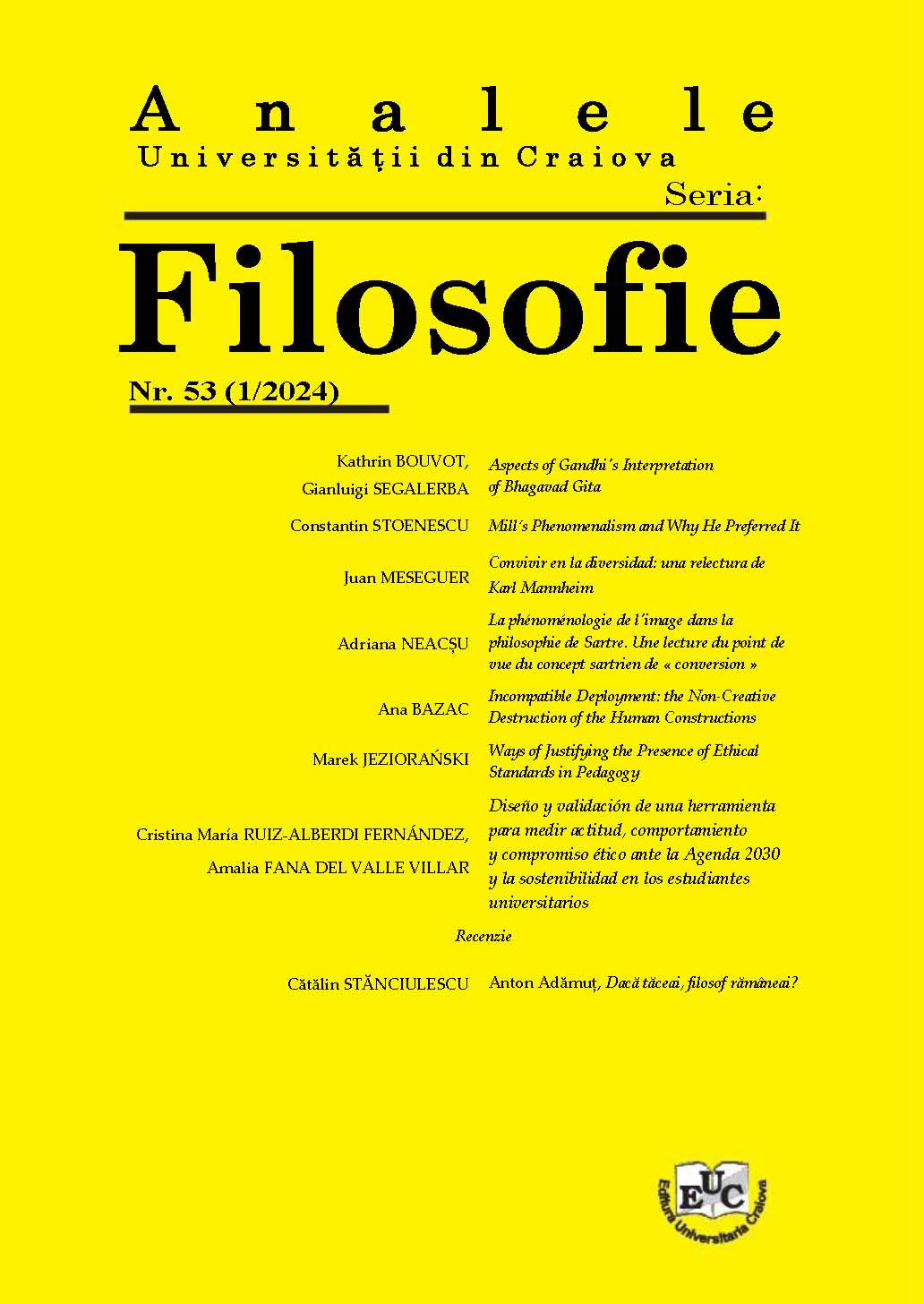MILL’S PHENOMENALISM AND WHY HE PREFERRED IT
MILL’S PHENOMENALISM AND WHY HE PREFERRED IT
Author(s): Constantin StoenescuSubject(s): Philosophy
Published by: Editura Universitaria Craiova
Keywords: John Stuart Mill; radical empiricism; a priori knowledge; relativity of knowledge; permanent possibilities of sensation; phenomenalism;
Summary/Abstract: My aim in this paper is to argue that the depreciative historical image on Mill’s empiricism is unjustified and biased, and that at least someof his theories and insights were still fresh and available as solutions to some philosophical problems in spite of the opposite public image claimed by hiscritics. I think that the strong rejection of a priori knowledge and hispreference for a radical empiricism were turned into a straw man which is ready for an easy criticism. Mill’s aim was to develop a radical empiricist theory regarding the sources of new knowledge following the so-called “new psychological way” based on the associationists principles. In the same time he balanced this woking hypothesis with the relativity of knowledge principle.As a result, he tried to solve this philosophical puzzle and to find a sort ofempiricst theory able to avoid some historical weaknesses, such as idealism and skepticism. He developed a phenomenalist theory based on the odea of permanent possibilities of sensation which seem to be the most wanted form of empiricism.
Journal: ANALELE UNIVERSITĂȚII DIN CRAIOVA. SERIA FILOSOFIE
- Issue Year: 1/2024
- Issue No: 53
- Page Range: 41-57
- Page Count: 17
- Language: English

